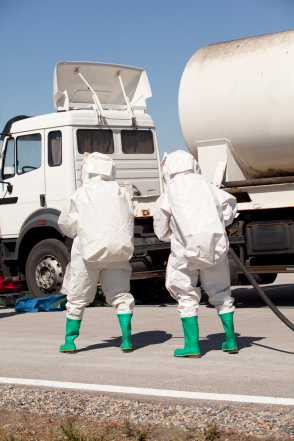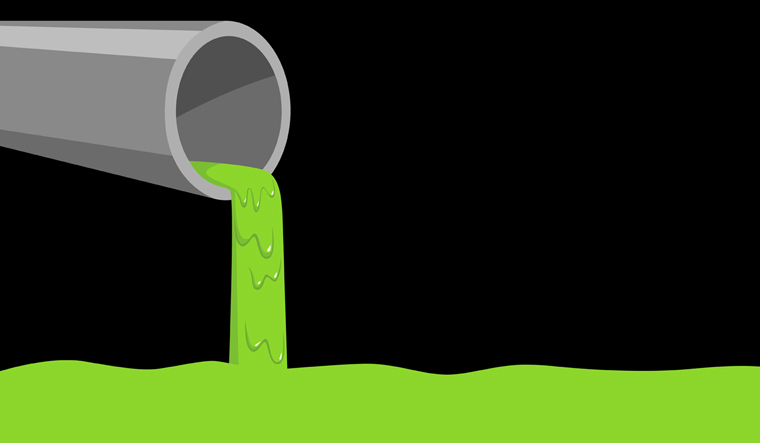Recognizing the Comprehensive Refine of Fluid Garbage Disposal: Finest Practices and Environmental Influence Factors To Consider
The monitoring of liquid waste disposal is a diverse issue that needs a detailed understanding of various ideal techniques and their associated ecological effects. From the types of fluid waste produced to the approaches used for collection, treatment, and final disposal, each action plays an essential function in protecting ecosystems and public health. As regulatory standards progress and modern technology breakthroughs, the conversation around these procedures comes to be increasingly significant. What effects do these modifications hold for future sustainability initiatives, and just how can stakeholders ensure that they are adequately resolved?
Kinds Of Liquid Waste
Comprehending the different kinds of fluid waste is crucial for effective administration and disposal practices. Liquid waste can be broadly categorized right into several types, each requiring unique handling and treatment strategies.
Industrial fluid waste commonly contains unsafe materials, consisting of hefty metals, solvents, and chemicals, generated throughout making processes. These wastes require stringent governing compliance to protect human health and wellness and the setting. Domestic liquid waste largely describes wastewater created from families, including sewer and greywater, which, although less harmful, can still pose significant threats if poorly managed.
Agricultural fluid waste, including drainage from farms, often consists of plant foods and chemicals that can cause ecological deterioration if not dealt with sufficiently. Clinical fluid waste, generated from health care centers, includes contaminated fluids such as physical liquids and chemicals, needing specialized disposal techniques to stop infection and ecological contamination.
Finally, oil and oil waste, normally created by dining establishments and auto markets, can cause serious obstructions in sewage system systems otherwise taken care of effectively. Understanding these groups helps with targeted strategies for therapy, conformity with regulations, and effective disposal techniques, inevitably promoting ecological sustainability and public health safety.

Collection Methods
Reliable collection approaches are vital for the proper management of fluid waste, making sure that it is collected securely and successfully prior to treatment or disposal. Different techniques are used depending on the sort of liquid waste produced, the quantity, and the specific characteristics of the waste.
One common technique is using committed collection containers or sumps, which are designed to capture liquid waste at the resource. These systems often incorporate pumps that promote the transfer of waste to bigger storage containers or therapy centers. Additionally, mobile collection units equipped with vacuum technology are employed in circumstances where waste is produced periodically or in hard-to-reach locations.
For commercial setups, closed-loop systems can successfully lessen spills and leaks, permitting the healing and reuse of fluid waste. It is also crucial to educate employees on correct collection procedures to mitigate threats related to harmful materials.
Furthermore, applying normal maintenance schedules for collection tools guarantees optimal efficiency and security. The integration of advanced surveillance systems can enhance collection performance by giving real-time data on waste levels and possible threats. Generally, reliable collection methods are foundational to lasting liquid waste administration practices.
Therapy Processes
Treatment processes play a vital duty in the administration of liquid waste, changing possibly dangerous materials into risk-free effluents or reusable sources - liquid waste disposal. These procedures can be extensively categorized right into physical, chemical, and organic approaches, each tailored to deal with specific impurities present in the waste stream
Physical therapy techniques, such as sedimentation and filtering, job by removing put on hold solids and particle issue. These methods are usually the very first action in the therapy chain, successfully decreasing the lots on subsequent processes. Chemical treatments entail the usage of reagents to counteract damaging compounds, speed up additional info heavy metals, or oxidize natural contaminants, thereby improving the safety of the effluent.
Organic treatment processes, consisting of turned on sludge systems and anaerobic food digestion, take advantage of the natural capabilities of bacteria to break down raw material. These techniques are specifically effective for wastewater containing naturally degradable contaminants. Advanced therapy modern technologies, such as membrane purification and advanced oxidation processes, are progressively employed to achieve greater levels of filtration.
Including a combination of these therapy methods not only makes sure conformity with regulatory criteria however also advertises ecological sustainability by recuperating important sources from liquid waste.
Disposal Options
Exactly how can organizations make certain the safe and accountable disposal of fluid waste? Effective disposal alternatives are critical for securing public wellness and the atmosphere. The primary techniques consist of land therapy, incineration, and disposal complied with by discharge right into local wastewater systems.
Land disposal involves the careful control of liquid waste in designated landfills, making sure that it does not leach into surrounding dirt or water. Incineration, on the other hand, topics liquid waste to heats, converting it right into ash and gases, which require appropriate filtration to reduce discharges. This technique appropriates for harmful wastes that can not be treated through standard ways.
In situations where fluid waste can be treated, companies may go with chemical or organic treatment processes to neutralize harmful parts prior to releasing the dealt with effluent right into local systems. This route normally aligns with governing demands, ensuring that the effluent fulfills security standards.
Ultimately, companies must conduct detailed assessments of each disposal option to establish its stability, thinking about aspects such as waste composition, regulative compliance, and prospective dangers to wellness and the atmosphere. By selecting suitable disposal methods, businesses can add to an accountable waste administration approach.
Ecological Impact
The ecological impact of liquid garbage disposal is a critical consideration for companies looking for to minimize their ecological impact. Improper disposal techniques can bring about significant contamination of water resources, Discover More Here soil destruction, and adverse effects on regional communities. For example, unsafe fluids can seep right into groundwater, posing risks to drinking water products and marine life. In addition, the discharge of neglected or improperly dealt with waste into surface waters can cause eutrophication, causing oxygen exhaustion and the subsequent fatality of fish and various other organisms.

To reduce these effects, companies must embrace best methods such as applying strenuous waste therapy procedures, promoting recycling and reuse, and sticking to regulative criteria. By taking an aggressive method to liquid waste monitoring, entities can dramatically reduce their environmental footprint while sustaining sustainable growth goals. Ultimately, an extensive understanding of the ecological influences connected with liquid garbage disposal is necessary for informed decision-making and liable stewardship of natural deposits.
Verdict
Reliable administration of liquid waste is critical visit this web-site for protecting environmental integrity and public health and wellness. Inevitably, a thorough understanding of fluid waste disposal not just reduces environmental influences but additionally fosters a dedication to liable source administration and ecological stewardship.
The management of liquid waste disposal is a complex concern that needs an extensive understanding of numerous finest practices and their linked environmental influences. From the kinds of fluid waste generated to the methods employed for collection, treatment, and last disposal, each step plays a critical role in protecting ecological communities and public health and wellness.The environmental impact of liquid waste disposal is an important consideration for organizations seeking to lessen their ecological impact. Ultimately, a thorough understanding of the ecological effects connected with liquid waste disposal is crucial for notified decision-making and liable stewardship of natural resources.
Inevitably, a detailed understanding of liquid waste disposal not just minimizes ecological effects yet also fosters a dedication to liable source management and ecological stewardship.
 Jason J. Richter Then & Now!
Jason J. Richter Then & Now! Michael Bower Then & Now!
Michael Bower Then & Now! Soleil Moon Frye Then & Now!
Soleil Moon Frye Then & Now! Kane Then & Now!
Kane Then & Now! Kerri Strug Then & Now!
Kerri Strug Then & Now!